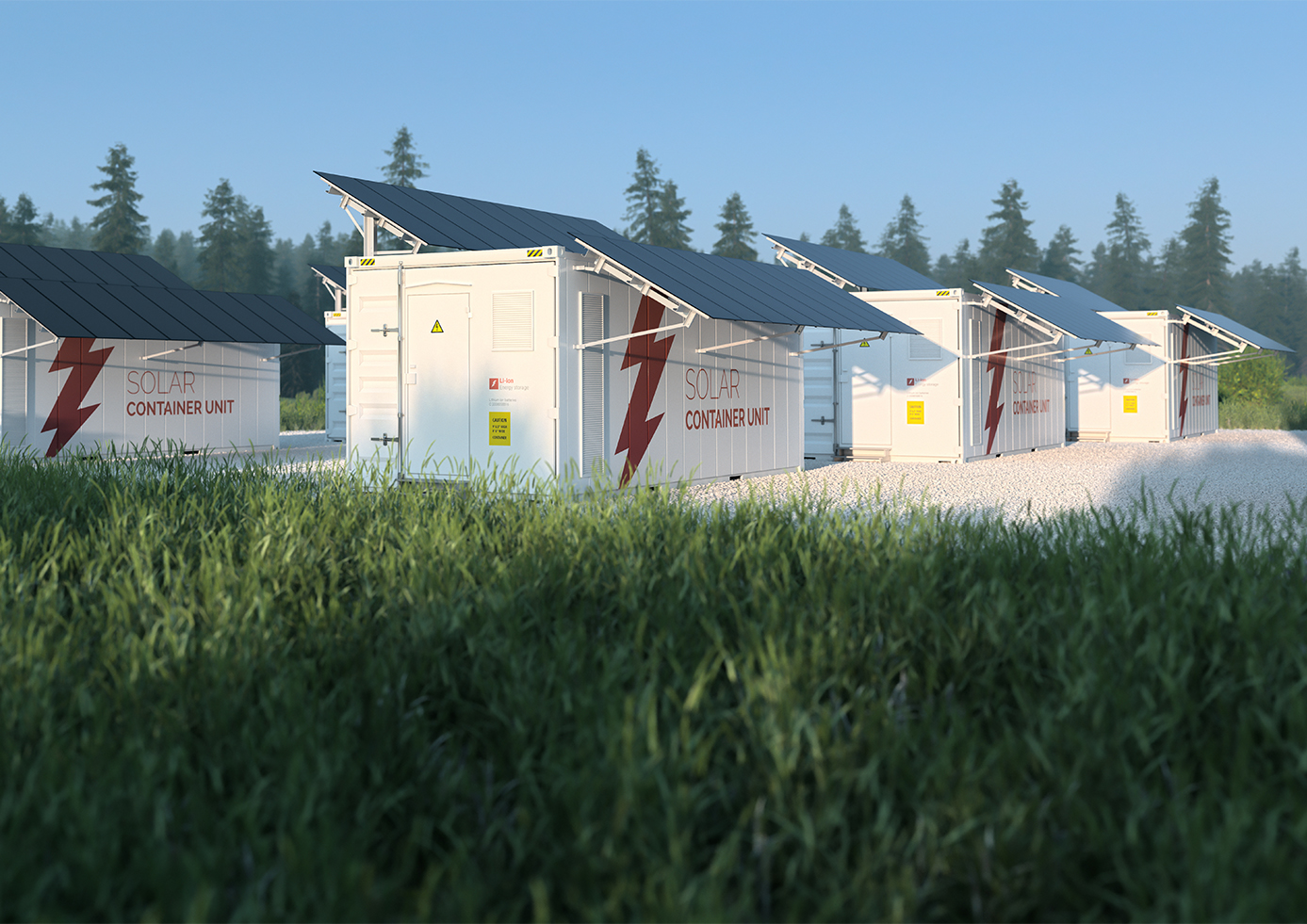The workshop container – a multi-talent that can be used worldwide
From CSC-approved sea container to self-sufficient workshop container
Nowadays it is more important than ever to find flexible and mobile solutions to meet the demands of an ever-changing world. With this in mind, we present an innovative idea to you today: the conversion of CSC-approved sea containers into self-sufficient workshop containers. CSC stands for “International Convention for Safe Containers” and refers to an internationally valid safety standard of the “International Maritime Organisation”.
For all those who want to have their containers transported by cargo ship, this certificate is a must. For the sake of simplicity, we will only talk about containers in the following text. Find out how these containers can break the boundaries of conventional workshops and create mobile workplaces that can be used worldwide.
The versatility of workshop containers
Workshop containers offer the perfect solution for companies and professionals who want to flexibly design their working environment. Using maritime containers as a base allows for easy and often cost-efficient adaptation to different requirements. Whether in remote areas, on construction sites or in emergency scenarios – workshop containers offer the necessary equipment to be able carry out a wide variety of activities. Their flexibility and mobility make them a real alternative to conventional workshops.
The conversion: From sea container to self-sufficient workshop container
Converting containers into self-sufficient workshop containers requires a comprehensive understanding of the requirements and also precise planning. There are numerous elements that can be included in the conversion to make the container a self-sufficient unit. As an example, the buzzword “Occupational Health and Safety Act” can be mentioned here. This expression has a direct impact on planning and implementation on the part of AWB GmbH, for example with regard to the underlying container height or lighting concepts to be implemented – to name just two sub-items here.
A central aspect and, in terms of content, the point that should primarily be addressed in this context is energy supply. The installation of solar panels on the container roof enables the generation of renewable energy to power electrical appliances and tools. Battery storage systems ensure constant power supply, even in remote areas. But here, of course, not only renewable energies have to be taken into account, as the possibility of working must also be guaranteed in regions with less solar radiation or in wintrier periods. In this respect, we can and must also think about the use of diesel or petrol generators and how they can be operated and later maintained in an easily accessible, space-saving and quiet way.
Here are a few examples of possible implementations, both in the photovoltaic sector and conventionally using petrol or diesel generators. Decisions on which systems to use are always extremely dependent on the subsequent operating environment.
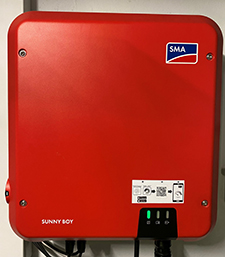
Inverter (here exemplarily from the company SMA), which generates an alternating voltage (e.g. 230 V) from the direct voltage of the photovoltaic system, which you know from the socket at home.
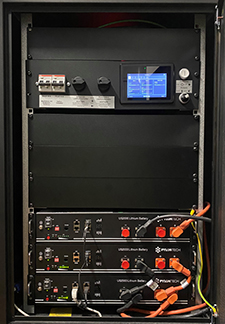
A cabinet in 19-inch format where batteries can be mounted to store the generated solar energy.
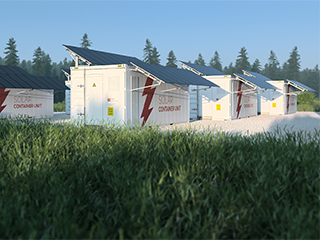
A picture of a photovoltaic module on a container.
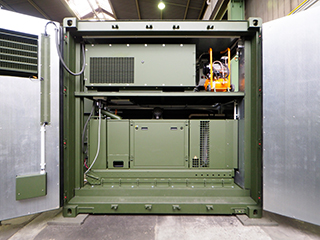
Frontal view of a converted sea container containing a diesel genset designed for extremely harsh environments.
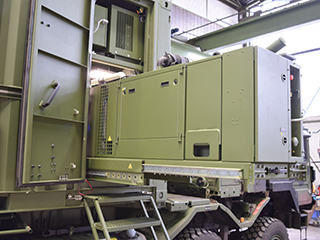
This is a picture of the aforementioned possibility to maintain or, if necessary, repair such powerful units. Implemented by storage on extendable heavy-duty rails.
Worldwide usability and advantages
The conversion of containers into self-sufficient workshop containers enables global use and is a response to the growing demand for mobile workplaces. Whether in remote villages, on construction sites or in crisis areas – these special containers offer immediate possibilities for use.
The flexibility and mobility of workshop containers allow companies to offer their services anywhere. This opens up new business opportunities and taps into markets that were previously difficult to access. Companies can react quickly to changing requirements and adapt their services to different geographical locations.
In addition, self-sufficient workshop containers are environmentally friendly and sustainable. Through the use of renewable energy and efficient resource management, they help reduce the ecological footprint. They are a sustainable alternative to conventional workshops and offer the opportunity to act in an environmentally conscious way.
In addition, the conversion of containers into self-sufficient workshop containers opens up fascinating possibilities for companies and professionals worldwide. The flexibility, mobility and sustainable features of these special containers make them an innovative tool to meet the changing demands of today’s working world. If you are looking for a forward-thinking solution that will drive your business forward and allow you to work anywhere, self-sufficient workshop containers are definitely worth considering. Prepare to rethink your idea of working environments.
Would you like to find out more about our self-sufficient AWB workshop containers or do you have any questions or suggestions? Feel free to contact us directly so that we can tackle your project together.
Contact form
Please submit your request to AWB
We will be happy to advise you.
Also on site at your company.


